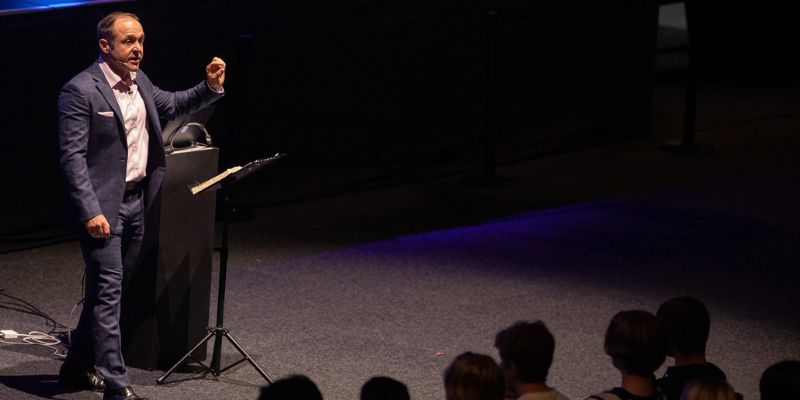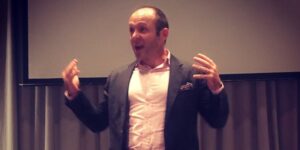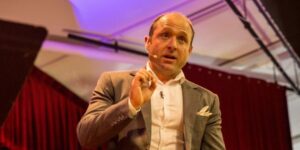Today marks the culmination of a three-day exploration into leadership within the context of Catholic education. If you’ve been following along, you’re already familiar with our journey. For those just joining us, don’t worry—this summary will catch you up to speed in no time. Over the past few episodes, we’ve delved into the essence of leadership, emphasizing its inherent connection to influence and character. We’ve examined how our choices shape our character, ultimately determining the type of influence we wield. Today, we conclude this series by emphasizing the pivotal role of reverence in the Catholic school environment. So sit back, relax, and let’s reflect on the profound interplay between leadership, influence, character, and choices.
Welcome Aboard
Again, welcome aboard to the Catholic Teacher Daily Podcast. Today, my friend is on day three, in a three-day sequence. So if you’re just coming into day three and you’re going, what is this all about? You want to go back in a couple of days. They’re both short podcasts, but I’m recording this one. We’re releasing this one, and from what I can tell, I believe it will be on April 4th. So if you go back to April 2 and listen to April 2 and April 3, you’re going to get up to speed with this really quickly.
For those who’ve been on this journey with me, let’s do a really rapid summary. We’re talking about leadership in the context of Catholic education. I’ve made the firm point that we are all involved in leadership. I know that’s not what I believed many years ago. But I’m convinced of it now. I’m convinced of this self-leadership piece. I believe that every single one of us, as individuals, are always leading ourselves somewhere. We are always leading ourselves in some way.
It’s happening, it’s a thing, it is what we are doing. We can lead ourselves off a cliff. Or we can lead ourselves to incredible impact and beautiful service of other people in a rich, full, meaningful life. God gives us this phenomenal freedom, free will, in our own lives.
Leadership Essence: Influence and Character

So we’re all in self-leadership, and we’ve been defining what leadership is. We’re doing a three-part process. Part one: leadership equals influence. Influence is something that has changed. If you’re just joining us today, I completely surrender in humility to the idea that there are multiple definitions of leadership. I know that. This is just a filter that I found very helpful for teaching around the world. Leadership is influence. Influence is something that changed behavior, changed beliefs, and changed the sense of what could be accomplished. Leaders change things through their influence; they influence environments. They influence people.
Of course, that raises the question. What if there is an absolute office psychopath and they’ve got terrible influence? Good point. Leadership is influence; what determines the type and kind of influence is character. The character of the leader, that personality, that character is what determines influence. Character and personality are a little bit different. Personality tends to be relatively fixed over the course of life, but we are given enormous latitude in our character.
"Our personality is relatively fixed. However, our character can be changed and the power to do so is in our hands."
Jonathan Doyle Tweet
That’s what we’re going to be talking about now in this third part of the three-part process. Part one: leadership is influence, and part two, influence equals character. The character of the leader shapes the kind of influence, good character; good influence, compromised character; compromise influence.
Character Crafting Through Strategic Decision-Making

So the obvious question, my friend, is what determines our character. Are we born in a particular way? Are we fixed in our character? If we were lying when we were kids, are we going to just keep lying all our lives? If we were lazy as kids, we’d be lazy all our lives, we’ll have some very good news. Okay, here it is: character equals choices. Character is determined by or equal to your choices. And I’m going to prove this to you.
Two things, first, I’ve spoken about this before; if you have seen me in a live seminar for Catholic education., but here it is. Aristotle was asked the question, ‘How does the courageous person become courageous?’ Now, the reason they ask that question is because the Greeks were not sure whether people were just born a particular way with the heroes of Greek mythology. Were they born that way, and nothing changed it, or did they become that way? And it’s an ancient question: nature and nurture.
Aristotle was asked that question. How does a courageous person become courageous? And Aristotle answered so beautifully. He just said this, Well they do courageous things. They do courageous things. So classical Greek philosophical thought on this matter was, you can put it simply, it’s just this, we become what we repeatedly do.
Think about it, if you regularly complain, if you are a classic complainant, we’ve all met somebody. It’s just that no matter what happens, it’s all bad. If you complain long enough, is it not true that you become known as a complainer? If you gossip all the time, if you gossip about people every single day, sooner or later, your identity, your character, becomes the character of gossip. Or if you have a habit of lying to people, you do that for long enough in your choices, then you move from somebody who tells an occasional white lie, you become a liar.
Impacts of Deliberate Choices on Identity and Conduct
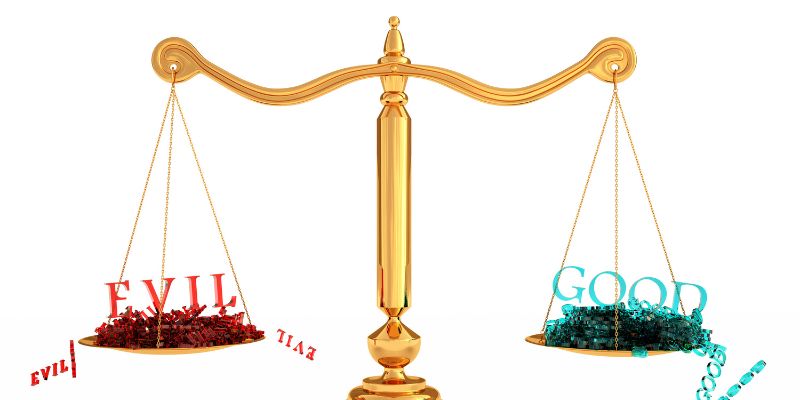
And again, shared this in seminars, this is what you find in Dostoevsky’s Crime and Punishment. At the start of the novel, the key protagonist is thinking about committing murder. He’s a very disaffected young man; he’s miserable. He’s full of resentment and bitterness. And he harbors this thought; he thinks about it. But remember that our emotions, rather than our thoughts, are morally neutral. And a feeling of anger isn’t a sin. It’s only what we do with it, of course.
So he’s not necessarily morally compromised for feeling the emotion of resentment. But he becomes more morally culpable as he thinks, and he stews and harbors these thoughts and begins to conceptualize and frame them. Then he tragically carries out this murder, and the point is, and I explain this to the audience. He goes from being someone who thinks about murder. Once he commits the act, he becomes a murderer. Yes, there is forgiveness. I get that. But we change ourselves with our choices.
Harmonizing Faith and Leadership Principles

What I’m trying to get Catholic leaders and teachers to understand is that the Christian life, the Catholic life, the sacramental life, the life of prayer, the life of scripture, the life of fasting, the hard work of the inner life, and becoming a saint like grinding away. Not as a Pelagian somebody; some of you will know what I mean by that: not grinding away, purely in our own strength, but this participation is partnership with God who wants to sanctify us. It leads us to make different choices over time. And those choices shape our character. So leadership is influence. Influence is character, and character is shaped by choices.
What do we need in Catholic education? We need men and women making virtuous choices. And they can’t do that purely out of their own strength because that’s the whole human story. We know that we can’t. I’m not saying we can’t strive for a virtual course; we can, but is it not true that the whole arc of salvation is showing us that free will is not enough in itself for us to pursue perfection.
We can pursue perfection through free will because I know there’ll be some theologians here listening to me very carefully. But my point is: In our own strength and nature, we’re not able to be perfect. So we need grace, we need the sacraments, we need prayer, we need to know the Bible, we need to be people who go to mass, go to confession, and go to adoration. And that inspiring grace allows us to become different. It gives us the grace to choose things that we may not otherwise choose in our own human strength. Leadership is influence, influence is character, and character is choices.
Promoting Virtuous Decision-Making in Catholic Educational Settings

So we want to improve our leadership, whether it’s leading one student, a classroom, an education system, an archdiocese, or if you’re the Pope. We do it all through our choices. Each of our choices shapes us in some significant way. That’s the magic of Catholic leadership. Is it not true?
Would you not feel comfortable and confident with a man or a woman in senior leadership in your school who you knew may not be perfect, but was trying for holiness, was trying to be kind, was trying to be considerate and prayerful and wanted the best for people. They were making those kinds of choices in their personal spiritual journey, then they’re going to be better leaders to live around and to work around.
Empowering Self-Leadership and Spiritual Enrichment

That’s our goal, friends. Whew. That’s quite a lot. Isn’t it? Brings me to the end of this three-day sequence. Tomorrow there’s something else I want to talk with you about. But, recording this here today, I’m thinking this is just so true for me. I’m not leading a school. But I’m leading a family with Karen, and I’m trying to lead myself. And each day I’m just focusing more and more on trying to let God shape my character by helping me with my choices to pursue what is good.
There’s a beautiful line, it’s some catechism. I can’t remember the exact paragraph. I was teaching it last week on that speaking tour I did. But the catechism makes clear that we participate in the divine reason. The reason: Rationality is an attribute of God. God is not chaotic. God does not subvert the laws of his own cosmos backwards and forwards. He can bend them as he does. And as Jesus does in the miracles, God is not subject to anything he has created.
But you notice the order of the cosmos, we have a thing called gravity that holds things. God doesn’t capriciously reverse gravity. So we find that He is a God of rationality and reason, and we, the catechisms, have participated in that, which means. We can actually know what’s good.
Continual Pursuit of Character Enhancement and Ethical Choices
As we build our characters, we grow in virtue. Our radar for the good becomes enhanced. We stopped playing petty politics, we stopped trying to defend our turf, we stopped trying to win the approval of others, we only want the approval of the people who love us and are closest to us. You want their approval. So we want to do the right thing for them. And we want the approval of the saints in heaven, the angels, and our Lord Jesus Christ. Win his approval.
We can know the right thing and we can choose it. And we’ve got to get better and better on this journey of self-leadership. I’d love to know what you think. I am working this out in my own life as I go. And I guess I’ll be working it out till we possess heaven, God bless you my friend.
Conclusion and Call to Action
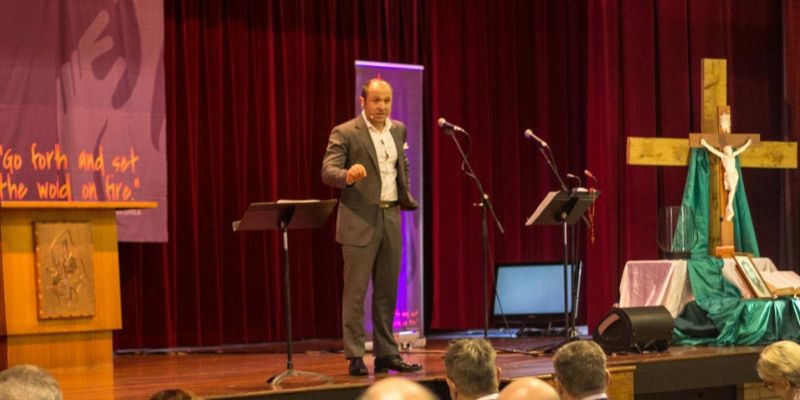
Tomorrow we’re going to talk about reverence, which is something I’m going to go off the reservation, there’s something I got to say. You and I are going to talk about reverence in the Catholic school. And for now, that’s our three-day series. If you haven’t heard the whole thing, go back and check it out. Leadership is influence. Influence is character. Character is choices.
So, my dear friend, pay attention to your choices. Pay attention to them. Ask the Holy Spirit to prompt and guide you. If you would like to book me to speak live at your school or in your diocese, please go to my website at jonathandoyle.co. On Instagram you can find me at @jdoylespeaks. If you could do one thing for me, if you’re still listening to this podcast at this point, share this podcast, grab the link, and send it to some committed Catholic educators and say, Hey, listen to this. Because just growing it and reaching more people is a huge blessing.
God bless you. My friend’s name is Jonathan Doyle. This has been the Catholic Teacher Daily Podcast. You and I are going to talk again tomorrow.
